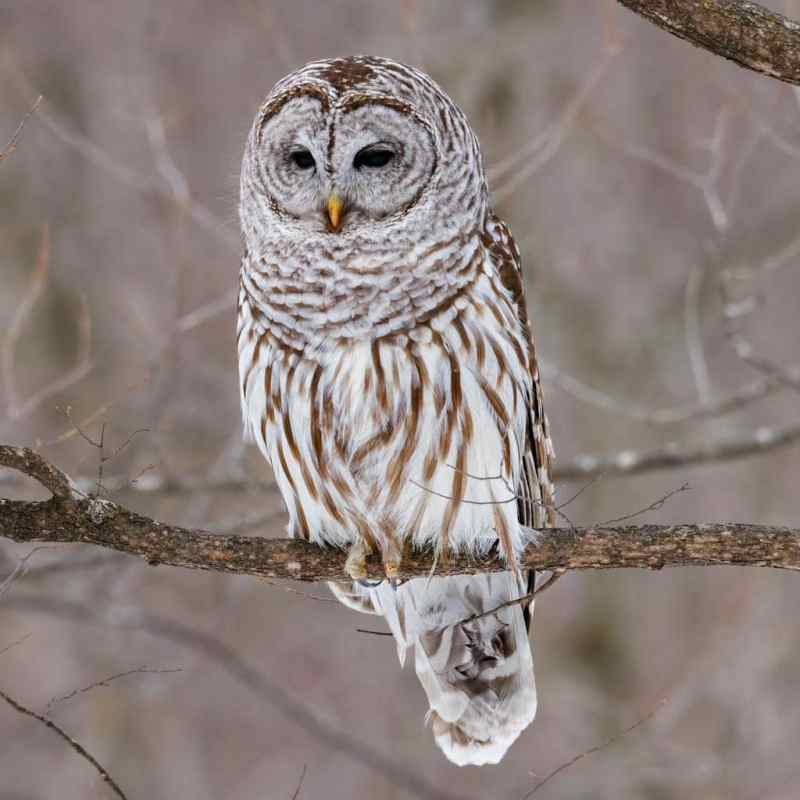What Does An Owl Symbolize In Christianity – Unlock the biblical mysteries of the owl! Discover its symbolic meaning and what it truly represents in the scriptures. Dive in now!
In the Old Testament, especially in Leviticus and Deuteronomy, owls are listed among the unclean birds that the Israelites were forbidden to eat (Leviticus 11:16-17, Deuteronomy 14:15-16). This classification may lead us to view owls negatively, but we must remember that God’s laws often have purposes beyond our immediate understanding. Perhaps this prohibition was intended to protect people from disease or to teach them about spiritual purity through physical practices.
What Does An Owl Symbolize In Christianity

The prophet Isaiah mentions owls in his vivid descriptions of desolation and judgment. In Isaiah 13:21, owls are described as inhabiting the ruins of Babylon, along with other wild creatures. Similarly, in Isaiah 34:11-15, owls are among the animals that will occupy Edom after God’s judgment. These passages present owls as symbols of abandonment and divine punishment.
Spiritual Meaning Of Owls In Dreams
However, we must be careful not to judge these beings too harshly. In Psalm 102.6, the psalmist compares himself to an owl in the desert, expressing his loneliness and isolation. Here the owl becomes a moving metaphor for human suffering and the need for God’s comfort.
Scholars sometimes debate the exact species of birds mentioned in these passages. The Hebrew words translated “owl” could refer to different types of birds or even other creatures. This reminds us of the complexity of translating ancient texts and the need for humility in our interpretations.
In all these representations, we see that owls in the Holy Scriptures often represent the desert, solitude and the consequences of sin. But let’s not forget that God’s creation is vast and mysterious. Even creatures associated with darkness can play a role in His divine plan. As we ponder these Bible passages, let us try to understand God’s message of redemption and His love for all of creation, including those parts that may seem strange or frightening to us. (Jung, 1969)
In biblical symbolism, owls often represent desolation, loneliness and abandonment. When the prophets speak of God’s judgment on the nations, they often mention owls as the inhabitants of the resulting ruins. This image evokes a feeling of emptiness and absence of human life. However, we must be careful not to see this as a condemnation of the owl itself, but as a powerful metaphor for the consequences of turning away from God’s love.
Interpreting The Biblical Meaning Of An Owl Hooting
The association of the owl with night and darkness in Scripture can symbolize ignorance, especially spiritual blindness. In the ancient world, owls were believed to be able to see in the dark, but paradoxically, they were also associated with those who could not see the light of God’s truth. This dual nature reminds us of the complexity of human spirituality and the constant need for divine enlightenment in our lives.
Some interpretations associate owls with wisdom, drawing on cultural associations that existed in the ancient Near East. Although this connection is not explicit in Scripture, it invites us to consider how God’s wisdom often appears in unexpected forms. Just as the owl’s ability to see in the dark was admired, so we can find spiritual insights in places or experiences that seem dark or challenging.
The solitary nature of the owl in biblical imagery can also symbolize the isolation that sometimes accompanies a prophetic call or a period of spiritual trial. When the psalmist compares himself to an owl in the desert, he expresses not only loneliness, but also a unique position – set apart, perhaps, for a special purpose in God’s plan.

In some passages, owls are counted among unclean animals, symbolizing what is ritually unclean. But we must remember that Christ came to fulfill the law and show us that God’s love extends to all creation. These symbols invite us to reflect on the nature of holiness and our own need for purification.
Owl Symbolism And Meaning (totem, Spirit, Dream And Omens)
As we ponder these symbolic meanings, let us not forget that all of God’s creatures have a place in His divine plan. The owl, with its mysterious and sometimes disturbing presence in the Holy Scriptures, challenges us to look beyond surface appearances and seek deeper spiritual truths that God wants to reveal to us. (Jung et al., n.d.)
To understand cultural beliefs about owls in biblical times, we must embark on a journey of historical and spiritual inquiry. The ancient world was rich in symbolism and meaning, and owls held an important place in the collective imagination of many cultures, including those that influenced the biblical writings.
In the Middle East, owls were often associated with desolation and abandonment. This belief is reflected in biblical passages that describe owls inhabiting destroyed cities and abandoned places. Owls’ nocturnal nature, their eerie calls, and their ability to thrive in places that humans avoid all contributed to this association. For many in the ancient world, the presence of owls signified the absence of human habitation and, by extension, God’s judgment.
It is interesting that in some neighboring cultures, especially in ancient Greece, owls were considered symbols of wisdom and were associated with the goddess Athena. Although this specific connection is not present in the biblical texts, it is possible that some of these cultural ideas influenced the wider Middle Eastern understanding of owls. This reminds us of the complex interplay between different cultures in the ancient world and the need to take these influences into account when interpreting Scripture.
The Owl — Sacred Wisdom, Mystery, And Transition
In Egyptian mythology, owls were sometimes associated with death and the afterlife. This association with the realm beyond death may have influenced how owls were perceived in biblical lands, perhaps contributing to their status as unclean animals in Jewish law. But we must be careful in drawing direct parallels, since the biblical worldview differed from that of the surrounding pagan cultures.
Some ancient beliefs held that owls could see in absolute darkness, a trait they both admired and feared. This ability was sometimes associated with occult practices or secret knowledge, which may explain some of the negative connotations associated with owls in the biblical context. However, we must remember that God’s wisdom often surpasses human understanding, and what seems mysterious or frightening to us can serve a purpose in His divine plan.
In many ancient cultures, including those of biblical times, the cry of an owl was considered an omen, often of impending doom or death. This superstition probably contributed to the owl’s reputation as a harbinger of judgment in prophetic literature. But as followers of Christ, we are called to look beyond such superstitions and seek the true message of God’s love and mercy.
Not all of these cultural beliefs are explicitly confirmed in Scripture. The Bible often uses cultural imagery familiar to its original audience to convey deeper spiritual truths. Our task, as contemporary readers, is to discern the eternal message within these culturally bound expressions.
Night Creatures In Scripture: What Does The Bible Say About Owls?
As we reflect on these ancient beliefs, let us remember that God’s creation is vast and complex. Even creatures that were viewed with suspicion or fear in biblical times have their place in the divine order. Perhaps in the contemplation of the owl, with all its cultural associations, we are invited to look beyond appearances and seek the wisdom that God offers to all who sincerely seek Him. (Jung, 1976; Jung et al., n.d.)
As we consider the spiritual significance of the owl encounter in our contemporary Christian lives, we must approach this question with openness to God’s mysterious ways and grounding in our faith. While we should be wary of attributing unwarranted supernatural meaning to natural phenomena, we can also pay attention to how God might be speaking to us through his creation.
Seeing or hearing an owl can serve as a reminder of God’s diverse and wonderful creation. In the Book of Job, we are reminded that God’s wisdom is manifested in the instincts and abilities he gave to animals (Job 39). The owl, with its extraordinary adaptations for nocturnal life, can inspire us to admire the Creator’s ingenuity and care for all creatures, even those that operate in darkness.
For some Christians, an encounter with an owl might trigger thinking about the topic of spiritual awakening. Just as owls are alert in the dark, we are called to be spiritually awake and alert, even in times of difficulty or uncertainty. As St. Paul writes: “For you are all children of light, children of the day.” We are not of the night or darkness. Therefore, let us not sleep like others, but let us watch and be sober” (1 Thessalonians 5:5-6).
Wise Or Warning? Biblical Meaning Of Owl Dreams
The owl’s association with wisdom in some cultures, while not specifically biblical, might encourage us to seek God’s wisdom more seriously. James 1:5 tells us: “If any of you lacks wisdom, let him ask God, who gives generously to all without reproach, and it will be given to him.” Perhaps the sight or sound of an owl could serve as a gentle reminder to pray for divine guidance in our daily lives.
In biblical images, owls often symbolize loneliness and desolation. Today’s Christian could be encouraged to think about the importance of solitude in our spiritual life. Jesus often withdrew to lonely places in order to
What does an owl symbolize, what does an orchid symbolize, what does an anchor symbolize in christianity, what does the cross symbolize in christianity, what does the dove symbolize in christianity, what does a lion symbolize in christianity, what does a butterfly symbolize in christianity, what does an owl symbolize in illuminati, what does the fish symbolize in christianity, what does a dragonfly symbolize in christianity, what does an emerald symbolize, what does a deer symbolize in christianity







